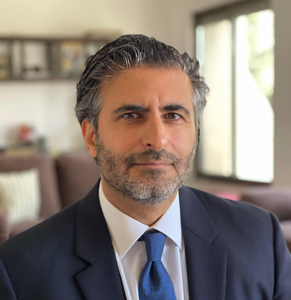In a recent speech at the Washington Institute for Near East Policy, White House National Security Adviser Jake Sullivan made various remarks that highlight the US involvement in the Middle East and outlined a framework for US engagement in the Middle East based on various elements but most importantly deterrence, integration, and partnership.
This clear message comes at a time when many observers of the region believe that US engagement is decreasing, leaving space for other players. This is particularly so following the emergence of China as a host for the process of reconciliation between Iran and Saudi Arabia, and the more recent Chinese position promoting itself as mediator in various crises from the Ukrainian to the Palestinian Israeli conflict. While the Chinese strategy is clearly to position itself as part of the solution as opposed to creating war and conflicts, it demonstrates Chinese interest in enhancing its position as an actor for peace when the US is ramping up confrontational language towards China. Their approach invites other countries to take a neutral rather than anti-Chinese position and has been successful with both France and the UK so far.
Sullivan’s speech suggested the Middle East could see increased American activism in the coming months, and he highlighted his upcoming visit to Saudi Arabia and the meeting with his counterparts from the United Arab Emirates and India where it is planned to discuss new areas of cooperation between New Delhi and the Gulf, as well as the United States and the rest of the region. This approach suggests an American strategy to offer an alternative to Chinese cooperation with the Gulf countries, rather than preventing the Gulf countries from dealing with China. It will likely involve offering more incentives for other opportunities of cooperation, especially given India and UAE signed a comprehensive economic partnership last year aimed at improving ties between the two countries.
Sullivan’s speech underlined this partnership with India, Israel, the United States, and the United Arab Emirates, as the fundamental notion to connect South Asia and the Middle East to the United States in ways that improve relations between these countries on all levels, economic, technology, and diplomacy.
Iran was also covered in Sullivan’s speech, and he insisted a desire to reengage Iran diplomatically regarding its nuclear programme, but at the same time he confirmed that the US would not permit Iran to obtain a nuclear weapon. Interestingly, he assured that President Biden has repeatedly reaffirmed, he will take the actions that are necessary to stand by this statement, including by recognising Israel’s freedom of action. Regional peace and the Abraham Accords were also included in Sullivan’s strategic vision, and even the Negev Forum, which brought together the largest gathering of Israelis and Arab officials in decades to discuss cooperation on issues from security to climate change to commerce to education.
Yet, the most important issue in this regional picture might be Sullivan’s response regarding the normalisation of relations between Saudi Arabia and Israel, and the interest that this administration has in achieving this target. He indicated that opening of the airspace over Saudi Arabia for civilian flights from Israel is one of the most tangible steps that have been achieved.
Overall, Sullivan’s comments suggest the US administration will bring back some focus on Middle Eastern politics in the coming year and will attempt to achieve steps that can be promoted as real successes on a diplomatic level and at the same time, serves the wider US wider in countering its rivals economically and diplomatically in the Middle East.
